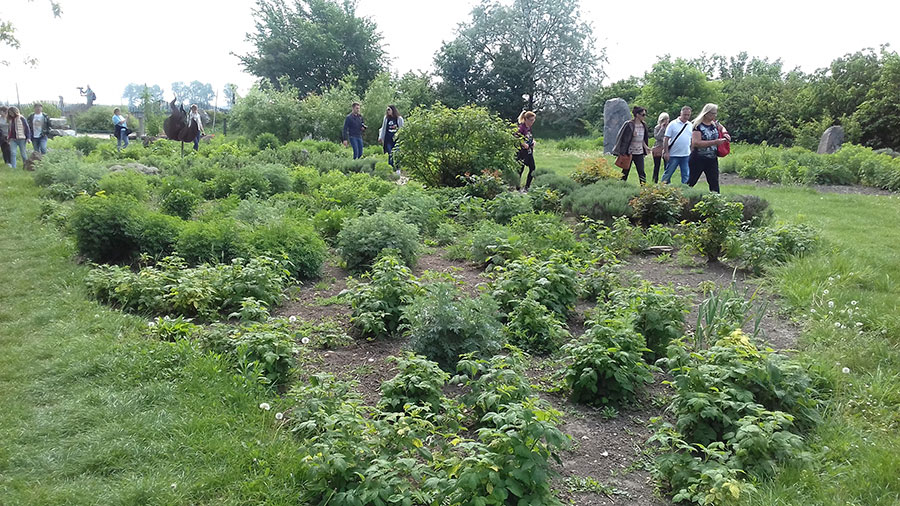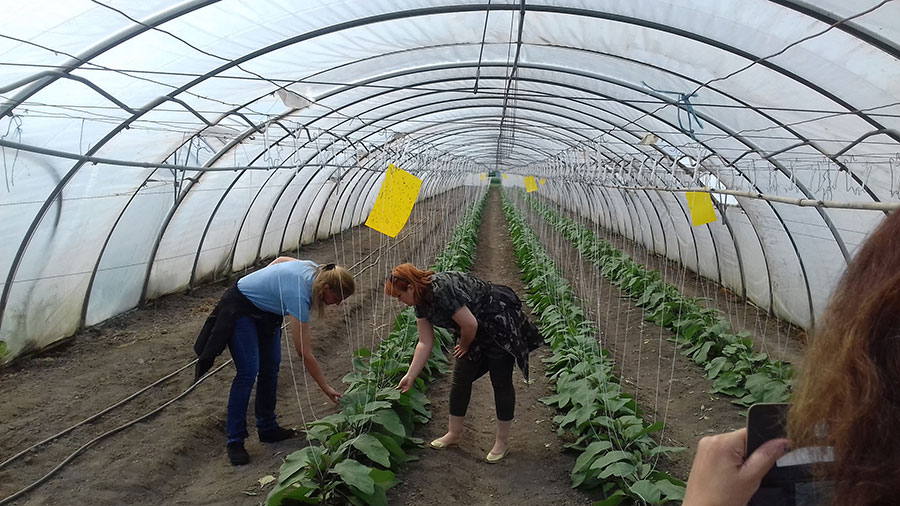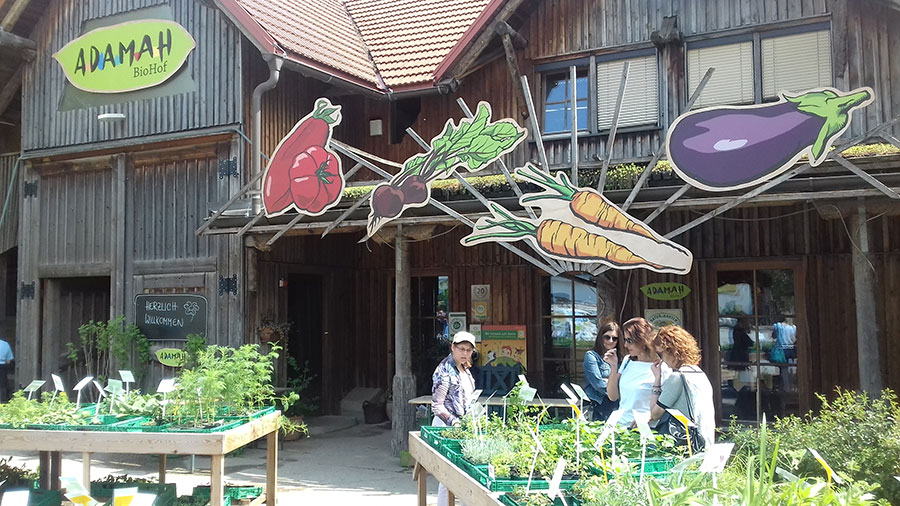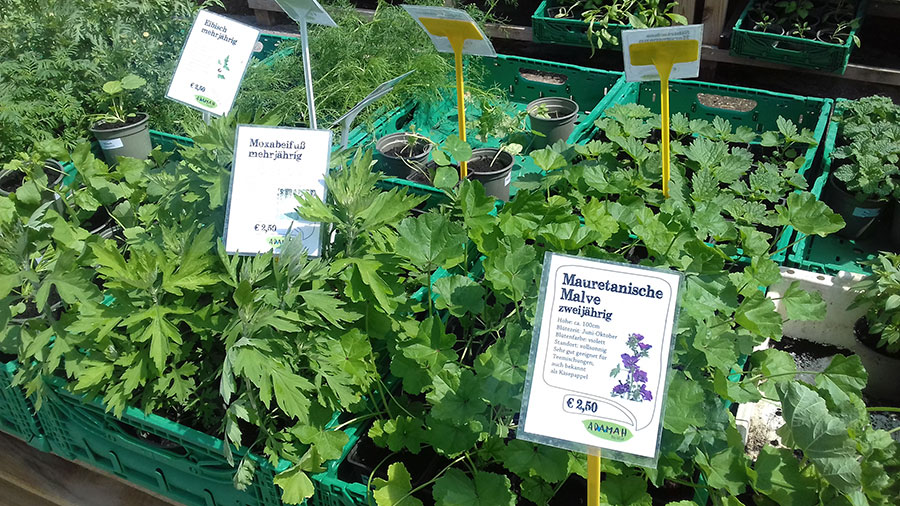Organic Bridge is the largest EU funded cross-border project in the area of organic agriculture in this part of Europe. As part of the project, organic producers from Serbia and Croatia went on a study trip to Vienna, organised at the beginning of May by the project partners – Center for Organic Production Selenca, Tera Tehnopolis from Osijek, Teras from Subotica and the town of Valpovo.
Seventy producers of organic food from Serbia and Croatia, as well as industry journalists, visited agricultural estate ADAMAH BioHof just outside Vienna where the Zoubek family grows close to 140 hectares of vegetables, fruits and cereals, including vegetable greenhouse-production. They are also well known for their bio packages – organic produce packages whose content is selected by the customers themselves and delivered to their home address.
 Simon, the youngest of four Zoubek children works full time at the agricultural estate. He explained that, aside from family members, the estate has a staff of 140. They are all responsible and accountable for the successful cycle of production and sales, from producing the organic products, processing and packing to sales.
Simon, the youngest of four Zoubek children works full time at the agricultural estate. He explained that, aside from family members, the estate has a staff of 140. They are all responsible and accountable for the successful cycle of production and sales, from producing the organic products, processing and packing to sales.
“We grow 60 different cultures, carrots mostly, but also parsley, parsnip, celery, tomatoes, muskmelons, apples, paprika, lettuce, herbs… We started organic production twenty years ago, and at that time it was hard because we had no one to learn from all that interested us. The situation now is very different. This is mostly plains country and there are more and more organic farmers, but that number is still not that high. We receive government subventions, but they are not large and they depend on the culture grown. Besides that, compared to conventional, organic production is harder and more demanding, it requires more manual labor, which increases the costs. Luckily the soil is of high quality, it’s bountiful and we try to use everything we have – we sell fresh product, and use the “damaged” for ajvar, carrot juice, pesto,” explained Simon.
 A shop is a part of the estate, where one can buy all the produce as well as seedlings, and customers that order bio-packages can leave everything to Zoubeks who cooperate with meat, milk and dairy producers. They have delivered the first 60 bio-packages in 2001 and the business grew exponentially. They have invested in delivery service and ordering software, so everything is oriented to the needs of the customers, now numbering in the thousands.
A shop is a part of the estate, where one can buy all the produce as well as seedlings, and customers that order bio-packages can leave everything to Zoubeks who cooperate with meat, milk and dairy producers. They have delivered the first 60 bio-packages in 2001 and the business grew exponentially. They have invested in delivery service and ordering software, so everything is oriented to the needs of the customers, now numbering in the thousands.
“What we don’t grow, we acquire from smaller producers who can still deliver the quantities we need, so we can be certain we can fulfill our customers’ needs. Those are high quality products and these days, our customers can, aside from food and beverages, order organic cosmetics as well,” he said.
 Aside from ADAMAH, organic producers from Serbia and Croatia also visited organic green market in downtown Vienna, and the visit to Austria, like previous study visits to Hungary and Slovakia, helped them gain insight into new trends in organic farming, but also into market operations and best practices for positioning the products they grow in their gardens and stables on the market.
Aside from ADAMAH, organic producers from Serbia and Croatia also visited organic green market in downtown Vienna, and the visit to Austria, like previous study visits to Hungary and Slovakia, helped them gain insight into new trends in organic farming, but also into market operations and best practices for positioning the products they grow in their gardens and stables on the market.
Organic Bridge is worth 550,000 Euros and the project is conducted within Interreg -IPA CBC Croatia-Serbia 2014-2020 program, aimed to boost organic agriculture, kick-start economic and entrepreneurial activities, develop the market for organic produce and enhance life in rural areas.




